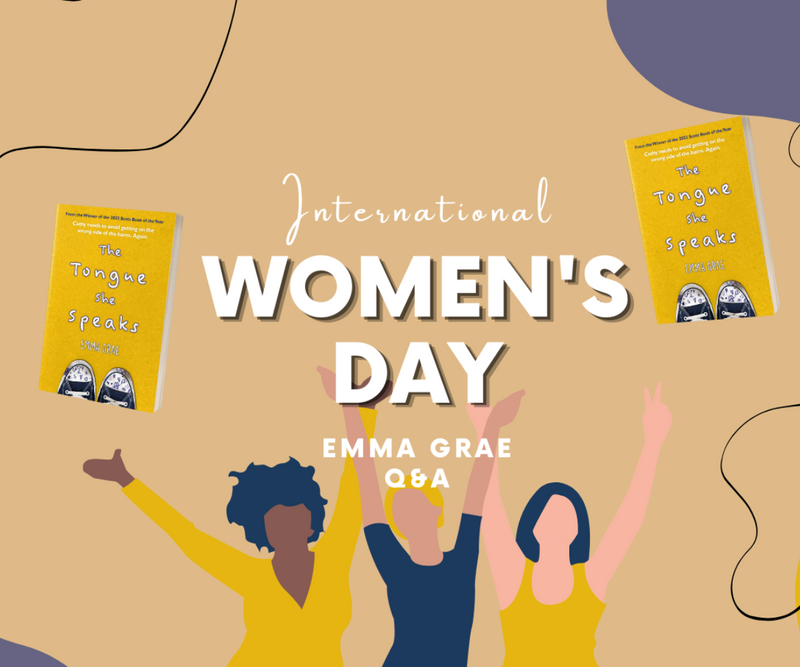Scots and Writing
International Women's Day Q&A with Emma Grae

International Women's Day Q&A with Emma Grae
As part of our celebrations for International Women’s Day, we are highlighting some of our female authors through our quick-fire Q&A.
What is a quick-fire Q&A?
We have our interviewee pick a number at random (between 1-42) and we ask them the general question listed next to it. Shortly after we switch to asking book-specific questions (1-22), to give you a brief insight into our wonderful writers and their books.
Today we join Emma Grae as she answers our questions about her life and her book The Tongue She Speaks.
What are your three favourite books?
The Great Gatsby by F. Scott Fitzgerald
If you could hypothetically be any character from any book, who would you be?
I’m not sure if they count as a character, but there's a series of books by William Beckwith set in the Highlands, and she moved there from London. I like the idea of that.
What is the most difficult thing about being an author?
Self-doubt
Where is your favourite place to write it?
Coffee shops.
What was your favourite book as a child?
Probably Harry Potter
What is your favourite breakfast?
Porridge with fruit or honey.
If you have any power, what would you choose?
To always know if someone is telling the truth.
What is your favourite thing about Scotland?
The language.
What is the main message you would like people to take from The Tongue She Speaks?
The importance of authenticity and being true to yourself.
How did the narrative come about?
In 2018, the Scottish Book Trust had a competition where you were to reflect on something. It was based on a theme on their website. I had the prologue and I was playing with the idea of writing in different voices.
Everything just came out after that.
I was also initially inspired by House Mother Normal by B. S. Johnson, which I read whilst I studying at Strathclyde University. This became of particular interest when I wrote Be Guid Tae Yer Mammy. It also resonated because I’d just finished working in a Care Home – as each chapter in House Mother Normal was from the point of view of a different resident in the care home like it's their internal narrative.
That's what inspired me to write in voices. But, my writing has become a lot more structured than B. S. Johnson’s.
In what ways do you relate to the main character and in what ways do you not?
It is mainly the things surrounding her Scots but I don't relate to Cathy when I was her age. I was not writing in Scots, certainly not consciously, and I was trying to be like everyone else. I didn't have the same fighting spirit in me that she does, but I like the same music that she did, even though I didn’t have the courage to actually go against the grain.
I also grew up during the period Cathy does so it really resonates with me – even though it now seems like a lifetime ago.
What do you wish you had known before starting the writing process for this book?
This was fun to write because I'd already written a large part of her story as an adult – which is what I am working on right now. I already knew her quite well. I was going into it fairly confidently.
The second part of her story is going to be harder because I wrote it when I was a lot younger. I am now having to go back and restructure the book.
I guess I wish I'd known what Kathy was like as a young person before I'd written her older story or attempted it.
What was your favourite thing about writing this book?
Reflecting on the early noughties and getting to listen to the music. It was nice to go on that trip down memory lane.
The main basis was formed during lockdown. Obviously, during lockdown, everyone was only really communicating online. It was nice to transport to a world where technology wasn’t really part of our everyday. If you told someone in 2007 that in 15 years time, they’d be locked in the house they wouldn’t believe you.